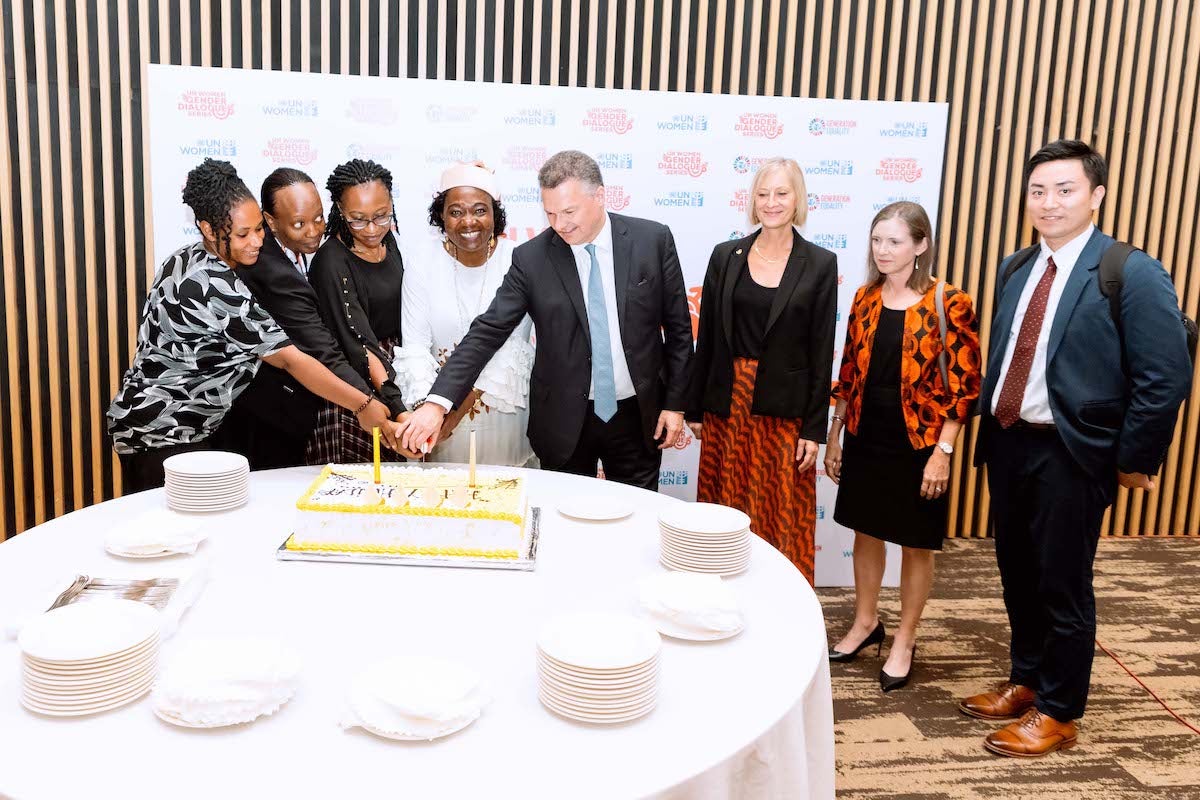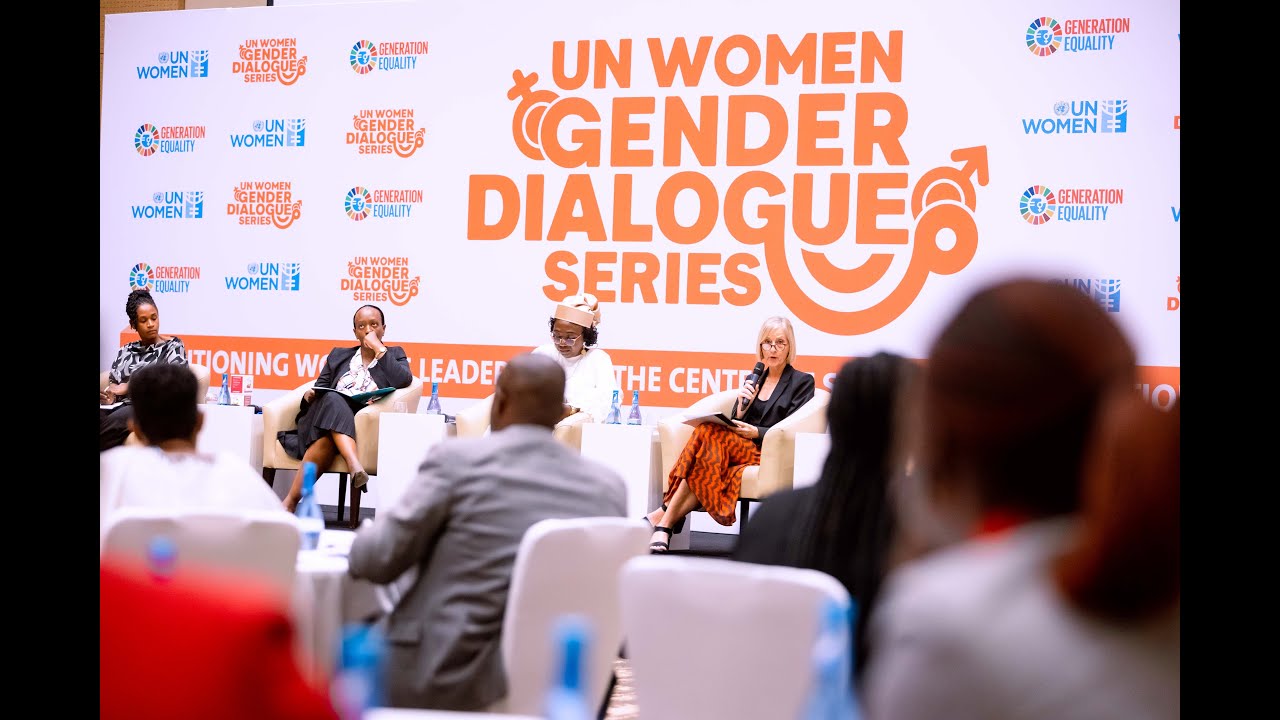Placing women’s leadership at the centre of sustainable nutrition in Rwanda
Date:
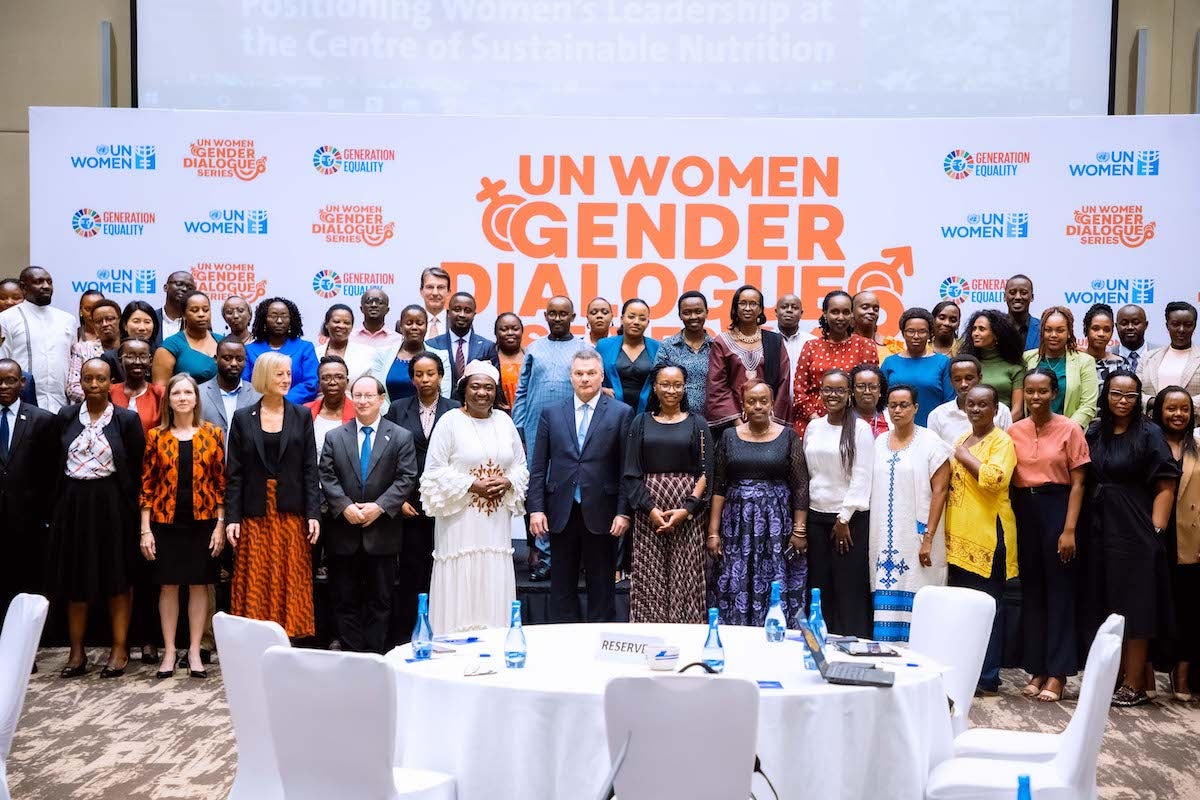
Smiles, nodes, and claps: the first edition of the UN Women Inaugural Gender Dialogues series, was nothing short of inspiring.
The event organized by UN Women Rwanda at Kigali Convention Centre on 17 November 2022 was the first of a series of interactive dialogues aimed at crafting feasible home-grown solutions and reflecting on policies that improve productive capacity and recognizing women’s crucial role especially rural women in fighting stunting and malnutrition in their households.
Under the theme, Placing Women’s Leadership at the Centre of Sustainable Nutrition in Rwanda, the inaugural event convened key players in nutrition, food security, agriculture, media, as well as policy makers to reflect on policies that improve productive capacity and recognizing women’s crucial role especially rural women in fighting stunting and malnutrition in their households in Rwanda and craft feasible home-grown solutions. The panel featured passionate and insightful revelations on the correlation between food security, gender equality and women’s empowerment.
Not even the rain could stop the incredibly invested guests who honored the invitation, most of them visibly dressed in celebration of African fashion ready to share their experiences and learn from one another.
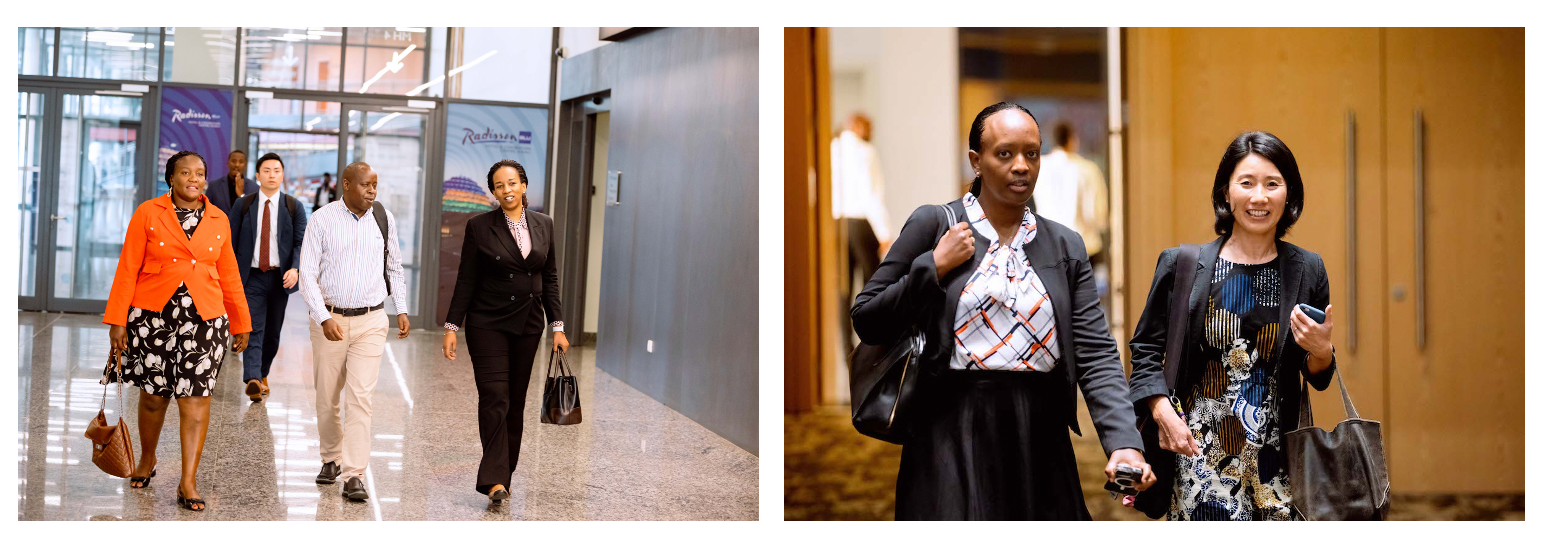
Gender Dialogues is a platform instituted by UN Women for stakeholders to reflect, discuss, and put forth policy suggestions on persisting and emerging gender equality, women’s rights and women empowerment issues in Rwanda.
The event consisted of two main parts: a panel featuring experts and a Q&A. The event opened by UN Women Country Representative Ms. Jennet Kem, who gave opening remarks on behalf of UN Resident Coordinator, Dr. Ozonia Ojielo, highlighting UN Women’s contribution in food security, the inspiration behind the theme, the intention to keep the conversation going and extending a clear Call for Action to accelerate efforts to put women at the center of improving nutrition outcomes in all sectors and at all times. She emphasized the importance of addressing the challenges women face along the various value chains, to valorize their indigenous knowledge and home-grown solutions in a bid to build their knowledge and capacity to tackle issues around nutrition deficiencies... adding that in so doing there will be a change in the narrative.
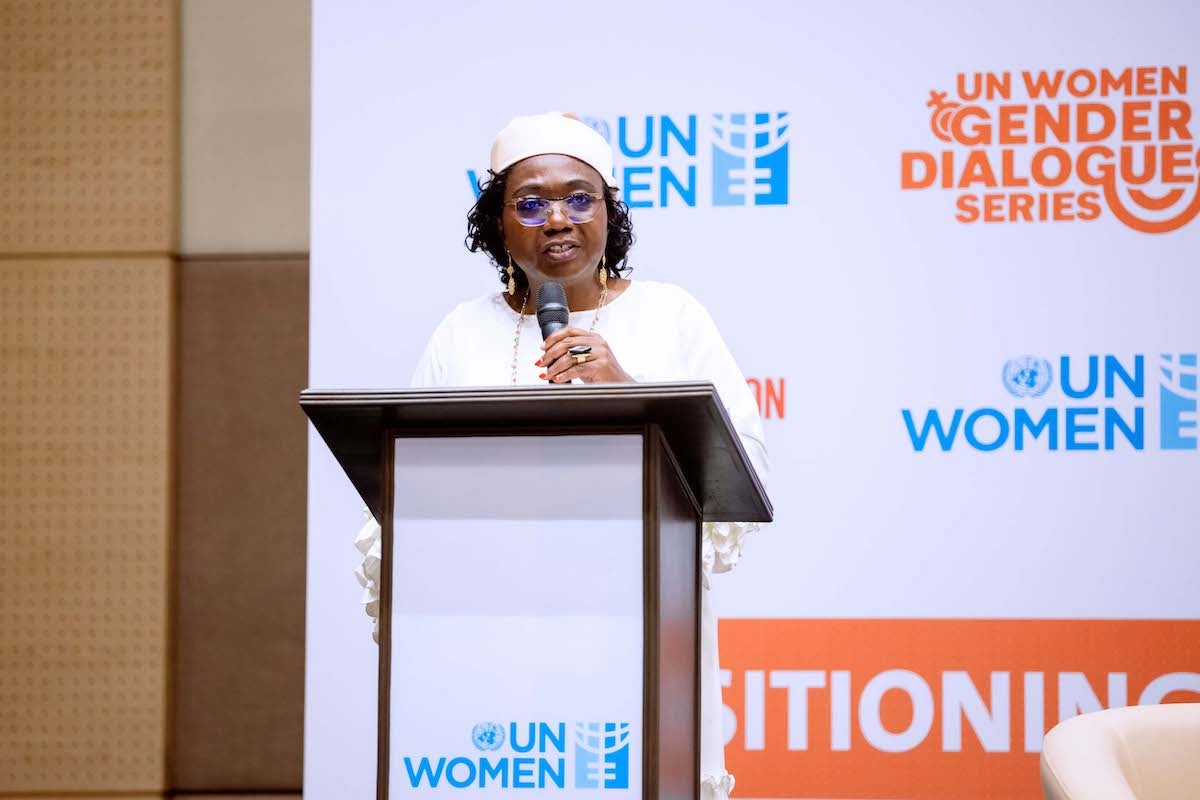
“Project women in their leadership roles in the food value chains and their contribution to solving the malnutrition problem” Ms. Kem passionately reiterated throughout her speech putting emphasis on the need for holistic, integrated, multi-sectoral and multi-dimensional approaches, involving all components of the ecosystem.
“Elevate women’s role in decision-making processes by dismantling gender stereotypes and harmful social norms, especially in rural areas. Effective, human-centered social and behavior change initiatives can be critical tools to this end,” she added.
As she ended her remarks Ms. Kem shared words of commitment to strengthen the Joint Programme on Rural Women’s Economic Empowerment jointly implemented by UN Women, WFP, IFAD, and FAO.
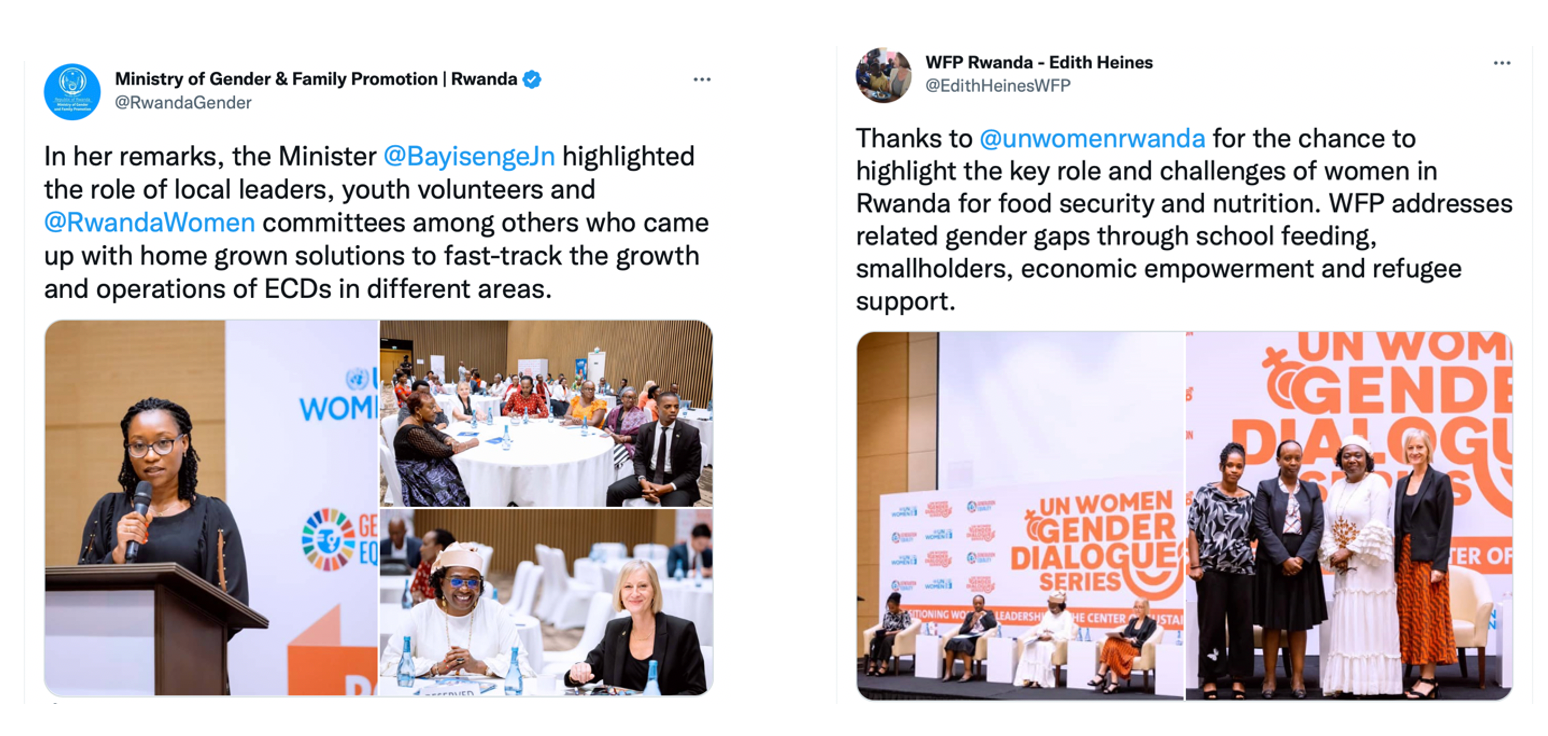
The UN Women Representative's earnest opening remarks were followed by a keynote address by the guest of honor, Hon. Minister of Gender and Family Promotion, Prof. Jeannette Bayisenge.
“Today we discussed the role of a woman who should not only be in the kitchen preparing food, but should also be in the decision making. Women usually don’t have a say in how local produce is utilized and in some instances the products are being sold at the market when their children are starving. Women need to be more engaged in leadership and aid the fight against stunting and malnutrition,” said Hon. Jeannette Bayisenge Minister of Gender and Family Promotion (MIGEPROF), nothing the contribution of the National Women’s Council, youth volunteers and local leaders in fast tracking the growth of early childhood development centers helping to cub malnutrition, adding that addressing sustainable nutrition calls for internationality in tackling gender inequality.
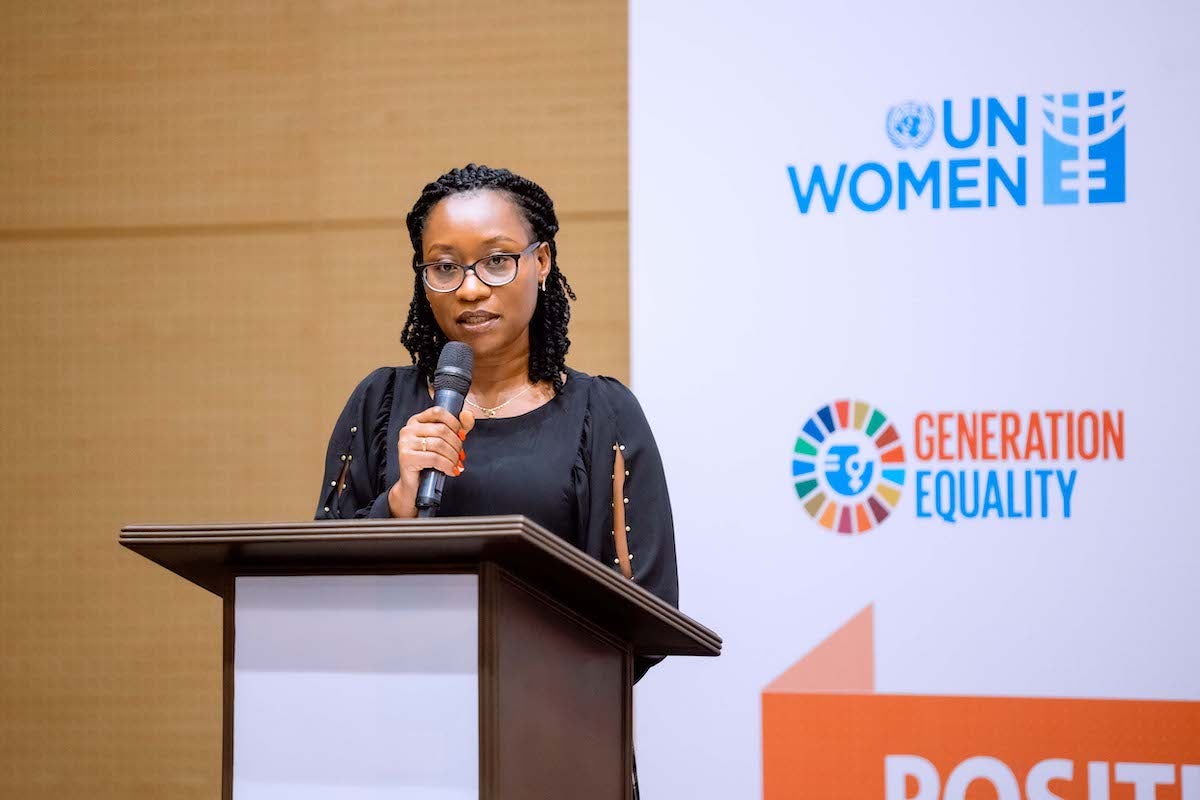
The guest of honor’s speech was followed by a panel dialogue centered on the theme of the day.
This year, the session was moderated by the UN Women Country Representative whose insight and immense experience enriched the experience for all, creating a conducive atmosphere for stakeholders to freely engage and collectively debate viable solutions and pathways towards sustainable nutrition with women at the center.
Panelists included Ms. Nadine Umutoni, the Director General at National Child Development Agency (NCDA), Edith Heines, World Food Program (WFP) Country Representative, and Annette Kasabiiti, Founder VeGeT Solutions.
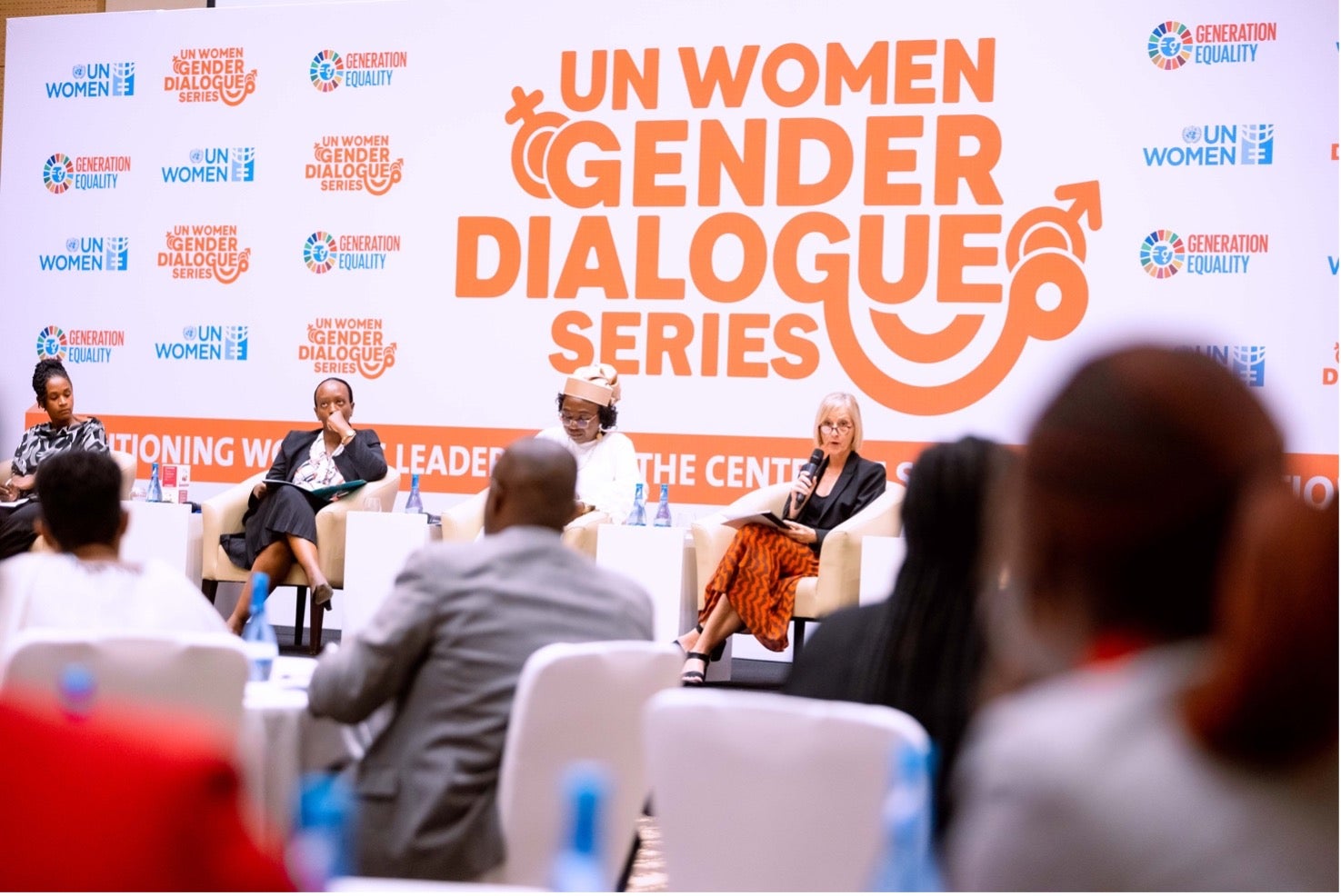
Ms. Umutoni highlighted the role of NCDA in coordinating all activities that support early childhood development program, elaborating activities implemented towards the promotion and protection of children rights including children with disability. She also weighed in on policies and actions in place to address the issue of stunting. “Our first restaurant as you all very well know is our mother’s being in the womb especially the first 1000 days. When women have access to income it benefits the family, and they always respond to the issues of malnutrition in the home.” she said.
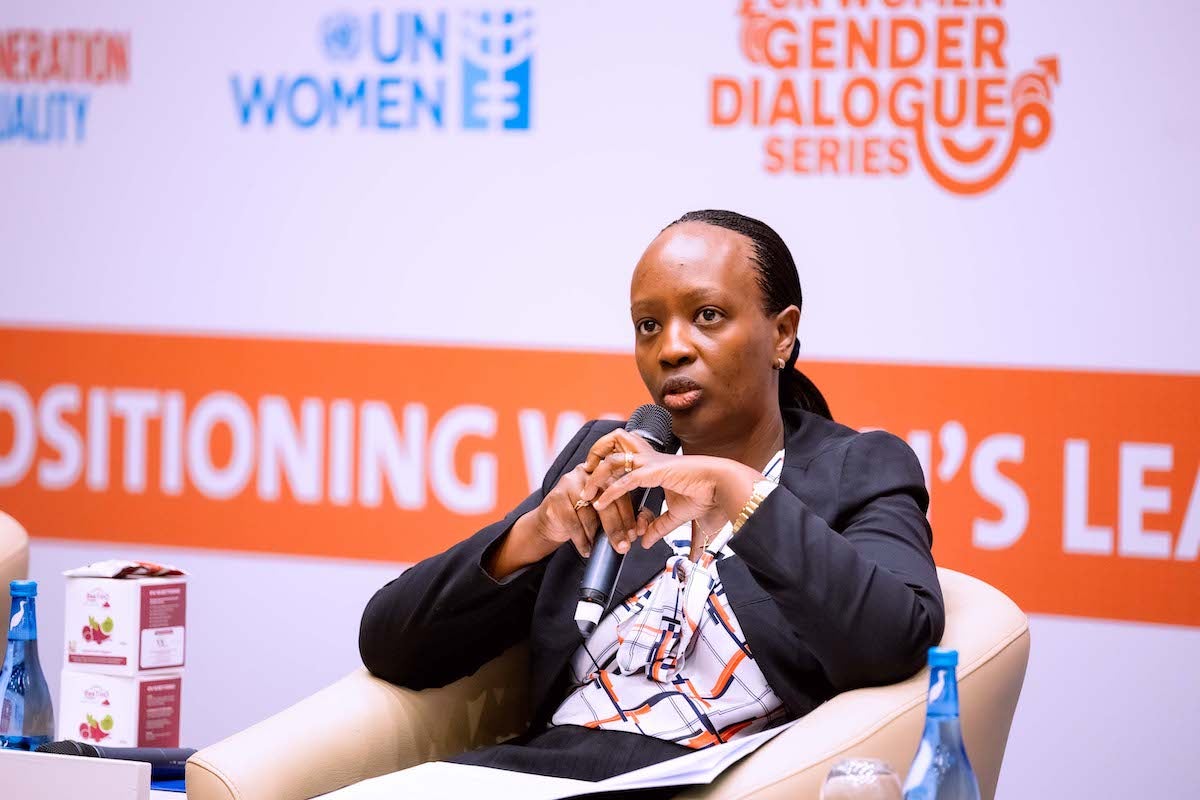
Ms. Heines noted that food security and nutrition are cross sectoral issues. It is not just a health issue or nutritional issue. It cuts across different sectors which makes it difficult to address.
“A household is food secure if you have enough food all year round to lead a healthy and productive life. Not just quantity, but quality of the food” she added.
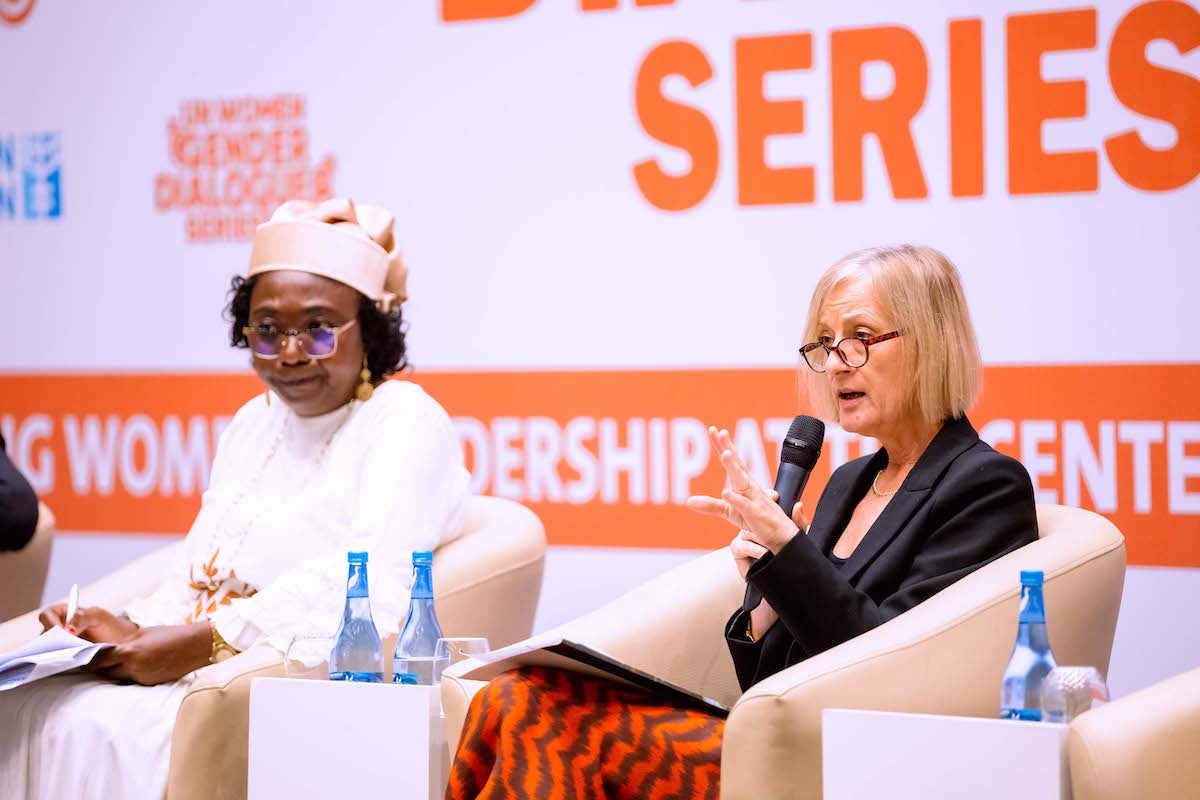
Anette Kasabiiti, a farmer and agribusiness founder of Veget solutions, shared her story suffered from anemia which inspired her to start a vegetable business. She began research to spread instant beetroot powder on market to ease consumption and maximize its health benefits but also reduce food wastage since they’re perishable.
“I decided to venture into a nutritious product that can contribute and help people: especially mothers, children and people of all ages” said Ms. Kasabiiti.

After a round of questions and eye-opening revelations from the remarkable all-women panel, it was a refreshing twist as the moderator opened the conversation to the floor and called on key players in the audience to contribute.
Representatives from Rwanda Initiative for Sustainable Development, UNICEF, WHO and RDO provided on-ground perspectives and shared their recommendations before handing back to the panel to proceed.
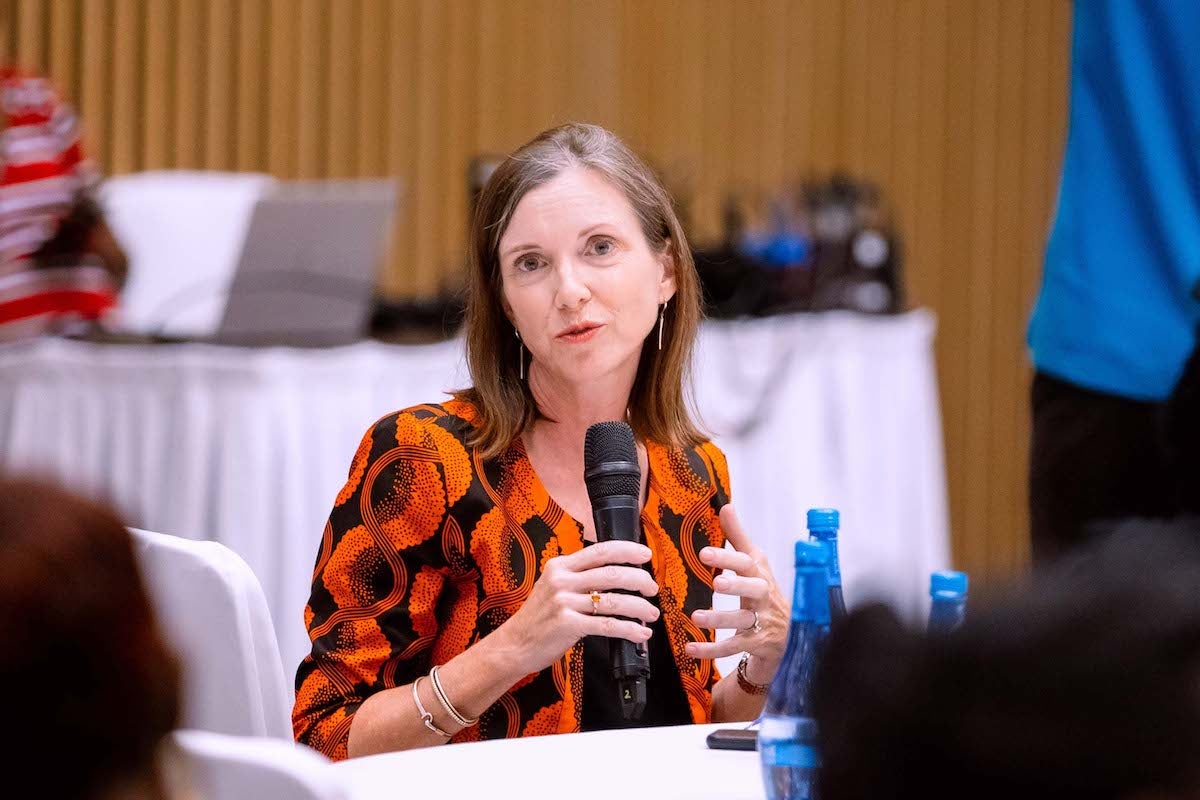
Ms. Juliana Lindsey, UNICEF Country Representative shed light on the topic of the day saying that nutrition is not just about stunting, it is also very much about the nutrition of adults as well. It is not just about malnutrition in a sense of not enough good quality food, there is also the flip side of too much food.
“In Kigali, 40% of the women are overweight which is a different form of malnutrition Ms. Lindsey said.
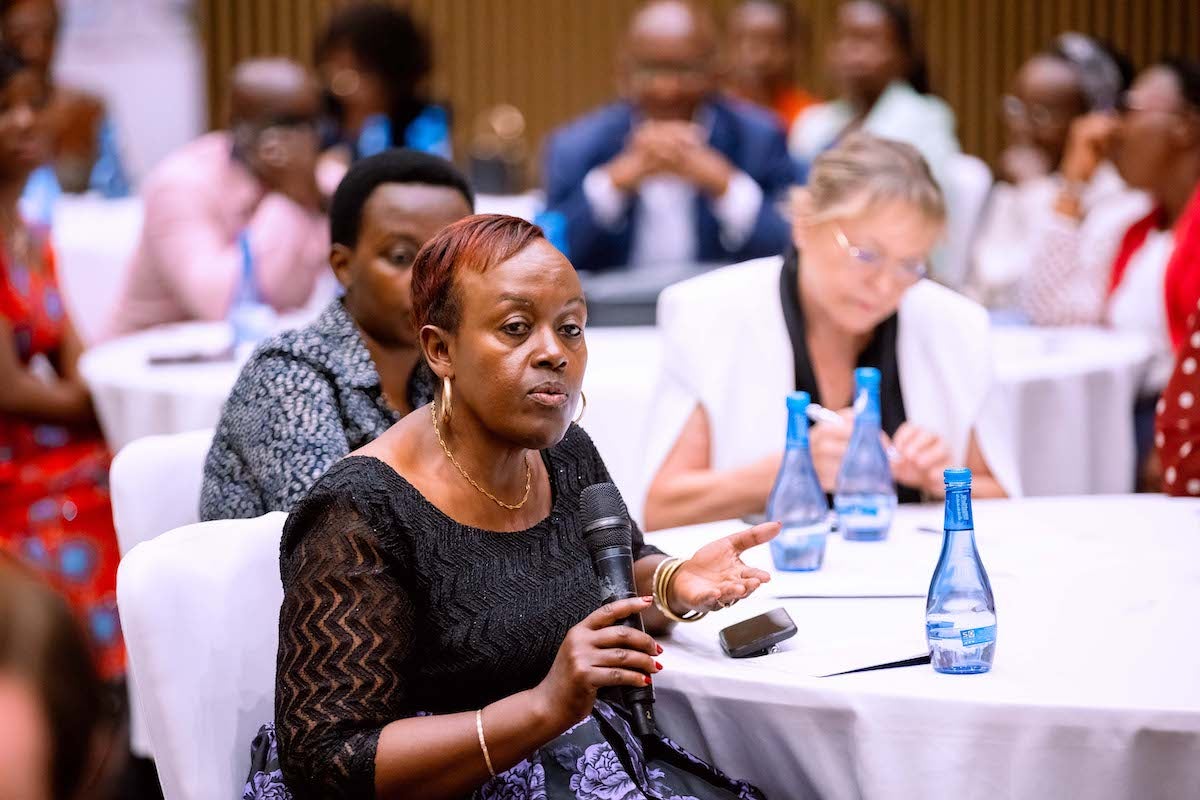
Annie Kairaba, Chief Executive Officer & Founder of Rwanda Initiative for Sustainable Development at Rwanda Initiative for Sustainable Development (RISD), a civil society organization emphasized the need to invest in subsistence farming saying that it not just in commercializing but also a lot to be done in the area of nutrition in subsistence farming for small farmers.
The second part of the panel then spilled into another Q&A slot only this time anyone was welcome to engage. Some of the participants shined a light on how they are contributing they are addressing the problem while others sighted gaps, tabled feasible solutions and harnessed the opportunity to applaud the milestones of the collective.
The event was followed by a networking cocktail to give room for guests to forge partnerships.
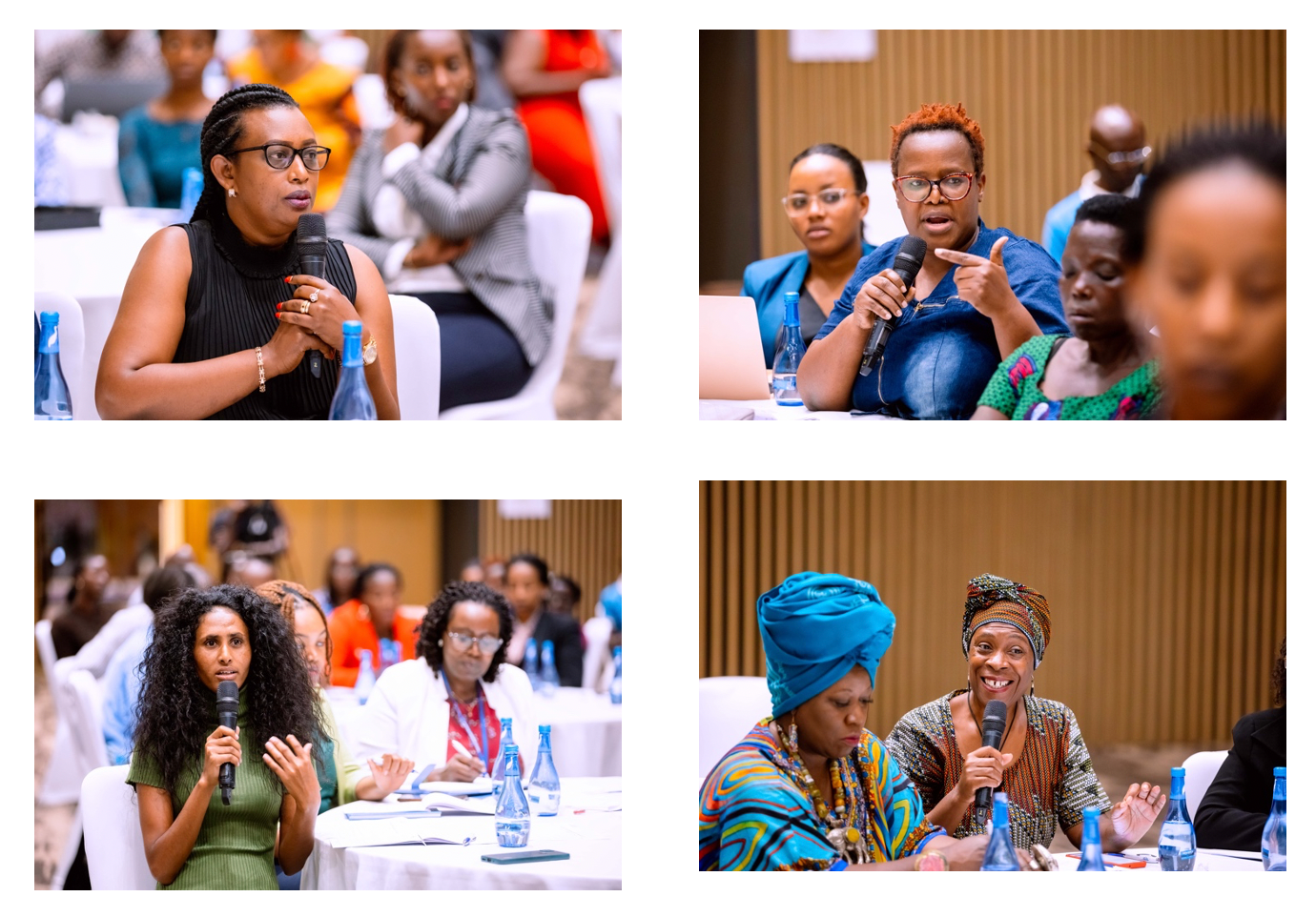
As reiterated by most of the participants, it is safe to say: the 2022 inaugural Gender Dialogues Series edition laid the foundation for infinite possibilities!
